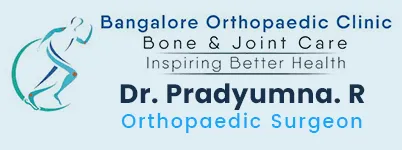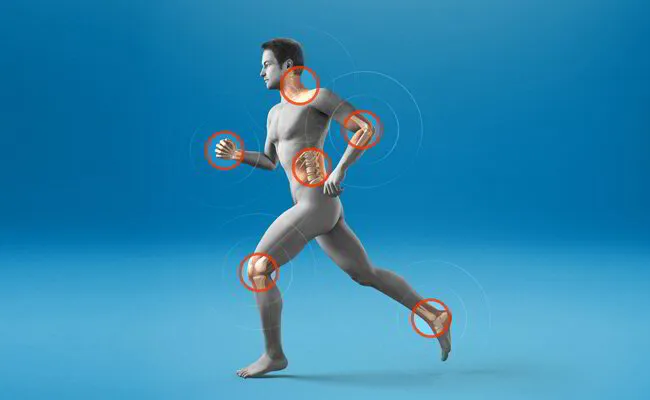Overview:
The bones are the basic structure of our body. These bones help to anchor the muscles to keep them in proper shape and help in locomotion. Without bones, the human body could have been a mass of muscles. Ligaments connect bones at different joints. So, the bones and the joints maintain the structure and function of our body.
Composition
An adult human body has 206 bones. These bones are the storehouse for many vital minerals. About 99% of our body has calcium, and 85% phosphorus is present in our bones. Other minerals like magnesium, copper, iron, boron, zinc, and potassium are also present in lesser amounts.
What are the common diseases we might face with age?
Bone care is very crucial for our body. Bone formation takes place for the first three decades of our life, and around the age of 30, it attains its peak bone mass. But after the age of thirty, the bone formation slows down. More bone cells are damaged than recovered. So, it is vital to take proper care of our bones from a young age.
Some of the bone diseases found in young individuals are Brittle bone diseases, vitamin D disorder, rickets, juvenile osteoporosis. Older people are more likely to suffer from Osteoporosis, Osteopetrosis, Paget's diseases, Osteoarthritis, or Rheumatoid arthritis, etc.
How can you keep your bones strong?
There is no perfect time to start taking care of your bones, right now is the best time. If you are searching for guidelines to keep your bones healthy and strong, then you are at the right place.
Here are some guidelines to be followed to take good care of your bones.
Eat Calcium-rich food: Choose calcium-rich food as bones are composed of calcium. Dairy products like milk, curd, yoghurt, paneer, cheese, and so on. Fortified soy, almond and rice milk, green leafy vegetables like spinach, okra, curly kale. Fortified orange juice, canned pink salmon with bone, and beans are foods rich in calcium.
- Vitamin D supplement: Red meat, oily fish like sardines, salmon fish, mackerel etc. liver, cow milk, orange juice, banana, egg yolk, margarine, and some fortified vegetables like mushrooms are a good source for vitamin D. Canadian food guide suggests that everyone above two years should have 500ml of milk daily to maintain vitamin D in our body. And if you are above 50 years, then take vitamin D supplements after consulting a doctor. You may spend some time for 10 - 15 minutes in the sun that will boost up your natural vitamin D synthesis.
- Vitamin K: Vitamin K helps new cells grow in the bone that will increase bone density. It also reduces calcium excretion from your body. Vitamin K plays a vital role than Vitamin D during fast cell growth. The green leafy vegetable is rich in vitamins, spinach, kale, green leaf lettuce, and parsley. Vegetables like broccoli, cauliflower, cabbage have vitamin K. Fish, liver, meat, cereals, and fruits- kiwi, avocado, blackberry, tomatoes.
- Watch your Potassium level: Potassium has no direct role in bone density. But it neutralizes the body acid contained to reduce calcium excretion from your body. Foods containing potassium are avocado, broccoli, dried fruit, potatoes, winter squash, bananas, spinach, etc.
- Reduce caffeine consumption: Too much caffeine consumption reduces the absorption of calcium. For adults, it should be no more than 2 - 3 cups of coffee each day. If you are a caffeine lover, then you should increase your calcium intake.
- Regular exercise: You should exercise regularly to stay away from diseases and maintain your bones. Exercises like jogging, hiking, running, and jumping. Then stretching exercises, dancing, and aerobics also helps in bone strength.
- Quitting smoking is better: Smoking increases the rate of bone decomposition. It results in faster bone loss and a high risk of bone fracture. It also prevents calcium absorption. It is always advisable to quit smoking.
- Limit alcohol intake: Limit your alcohol intake as it increases the risk of rapid bone loss. For an adult human, it should not be more than 2 - 3 drinks per day.
- Know your family history: If your close relatives have active osteoporosis at a young age, then immediately consult a doctor and take necessary medical treatment.
- No more highly processed food: Highly processed food is not efficient for health. During processing, it takes out the nutritional value of a food.
- Check on your hormone level: Hormone plays a prominent role in bone growth. Too much thyroid level may lead to bone loss which will gradually weaken your bone. In women, low oestrogen level after menopause may cause osteoporosis.
Intake more vitamin and mineral-rich food, take a proper amount of calcium, exercise regularly and avoid smoking and drinking. Do ensure to follow the simple guidelines mentioned so that your bones remain strong and healthy as you age. Create a routine and stick to it.

